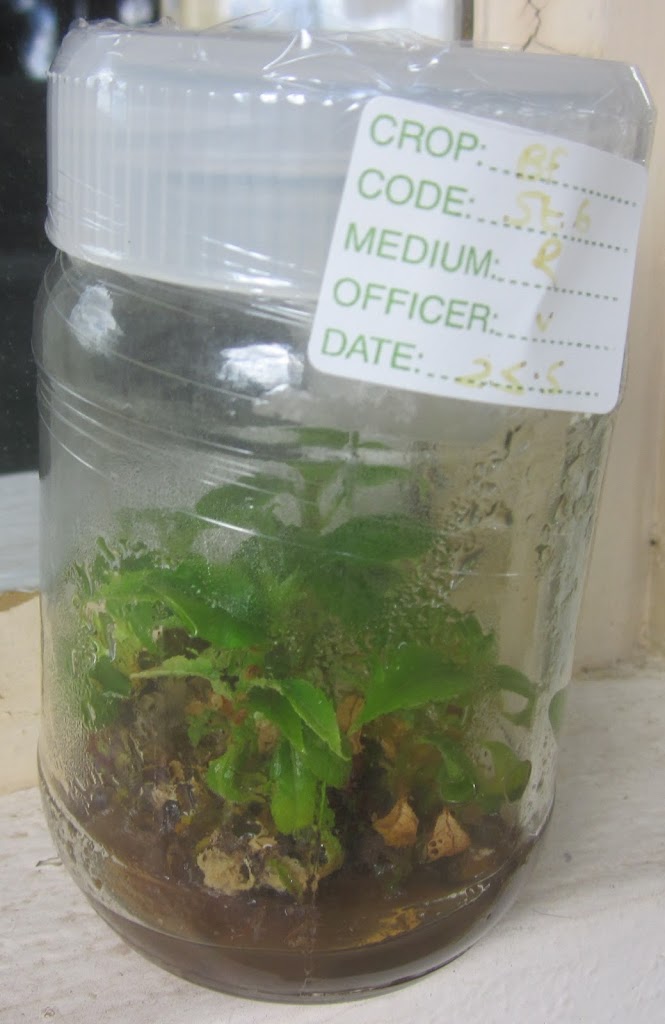In the context of food security in Mauritius, breadfruit has been identified as an important alternative staple crop by the government. Presently, the two main staple food in Mauritius are rice and wheat (consumed in the form of bread etc.) and it is a well known fact that both commodities are not grown in the country and we are importing all the staple food that we are consuming. Over the years, breadfruit trees have become rare in Mauritius which can be explained by various reasons; it is a crop which is under-utilised and when it not consumed, it falls on the floor from the tree, creating a foul smell and attracting insects. As a result, many trees have been cut down and today there are few trees found mainly in backyards over the island.
If breadfruit is to be used as a staple crop in a National Food Security Programme, it means that thousands of breadfruit trees need to be productive and the only way to produce this amount of plants in a short period of time is by in-vitro propagation, also known as tissue culture.In-vitro propagationIn-vitro propagation (also known as micro-propagation) is about taking a cell from a plant, sterilise it, and allow it to grow in a medium (usually agar) which contains nutrients (both micro and macro nutrients). From this short description, micro-propagation sounds to be very simple, but this technique is actually not an easy one. It requires skills (trained personnel) and specialised production facilities (laboratory). The video below gives a brief over-view of tissue culture:
In Mauritius, research on breadfruit is being carried out by the Agricultural Research and Extension Unit and the University of Mauritius, while in-vitro propagation is being done by the Food and Agricultural Research Council (FARC). The presentation below has been shared by the FARC on the Mauritius Breadfruit Sector Consortium Wiki, which gives a very good idea of how breadfruit planlets are produced in-vitro in Mauritius.
In the past years, the production of in-vitro banana planlets have known a huge success in Mauritius as thousands of plants have been produced to meet the demand from the local market and for export. With respect to food security, the same response is expected from breadfruit in the coming years.
Visited 151 times, 1 visit(s) today


Hi Nawsheen,
My name is Efrain Torres. I would like to start a breadfruit cooperative in Puerto Rico and want to find and efficient way to reproduce the breadfruit trees. I know that root shoots and in vitro are the two most common ways to reproduce breadfruits. Do you have a document on in vitro protocols or how to efficiently reproduce by root shoots?
Hi Nawsheen: I am doing a breadfruit field research in Hawaii. In case of breadfruit tissue culture, my students and I did not get expected results. Is it possible to send your media preparation protocol? My email address is “SHARADCH@HAWAII.EDU”.